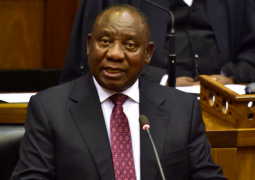
President Cyril Ramaphosa has refuted accusations made by some Members of Parliament that he is failing to honour his obligations by not giving a detailed report about a robbery two years ago on his farm, allegedly involving millions of dollars in foreign currency.
Responding to the debate on the Presidency’s Budget Vote in the National Assembly, President Ramaphosa maintained that “accountability is a responsibility I have never shirked or shied away from”. He then summarised the ways in which he is accountable to Parliament and to the people of South Africa.
As evidence of his good track record on accountability, the President mentioned the number of times he has appeared before both Houses of Parliament to answer questions and his responses to written questions. He also spoke about his appearances before the Commission of Inquiry into Allegations of State Capture and the South African Human Rights Commission hearings into the July 2021 unrest.
“We are a government elected by the people, for the people, and we are accountable to the South African people for all that we do. The people of South Africa must come first in all that we do. As public representatives, we were elected on the promise to improve their lives and we are obliged to keep that promise. It is the reason for this government and this Parliament’s existence.
The President told Parliament that the robbery took place on his farm Phala Phala in 2020. It is now the subject of a criminal complaint and the law must take its course. Due process must be followed. “I will therefore not be responding to speculation, conjecture, allegations or so-called revelations. These must be ventilated in the proper and appropriate forums. I repeat, the law must take its course,” President Ramaphosa explained.
Meanwhile, the President welcomed the inputs made by MPs during the debate on the support Parliament will render to the Presidency to enable it to better fulfil its mandate. Responding to some parliamentarians who described government coordination through the Presidency as creating a super presidency and an over-centralisation of power, President Ramaphosa said this has been found to work effectively, particularly during this era when strengthening the capacity of the state is a priority.
The President also spoke on the security of South Africa’s energy supply, saying it has had a direct and material impact on domestic and international investor confidence, which in turn has a direct impact on job creation. That is why supporting structural reform in the energy sector is one of the Presidency’s foremost priorities.
“The energy reform process is aimed in part at addressing our immediate challenges. I outlined progress in the renewable energy procurement programme, the conclusion of power purchase agreements for three risk mitigation projects and measures that we will be taking to close the electricity gap. But the ultimate objective is to fundamentally transform the energy landscape, create a new competitive electricity market and, most importantly, decarbonise our economy,” he said.
The President also reported on the District Development Model (DDM), calling it a transformation of government planning and a break from the past, where departments worked in silos, fruitless expenditure on irrelevant projects was common and where development was not aligned to national objectives. He is confident that once this model is fully institutionalised, it will result in better use of resources, targeted development and responsive planning. Districts and municipalities will then be able to develop, while harnessing existing local economic initiatives, such as special economic zones, industrial parks and agri-hubs.
“We have set ourselves the target of rolling out the DDM in all 52 of the country’s districts, and the Presidency will be conducting oversight in this regard,” said the President.
Sakhile Mokoena
13 June 2022

